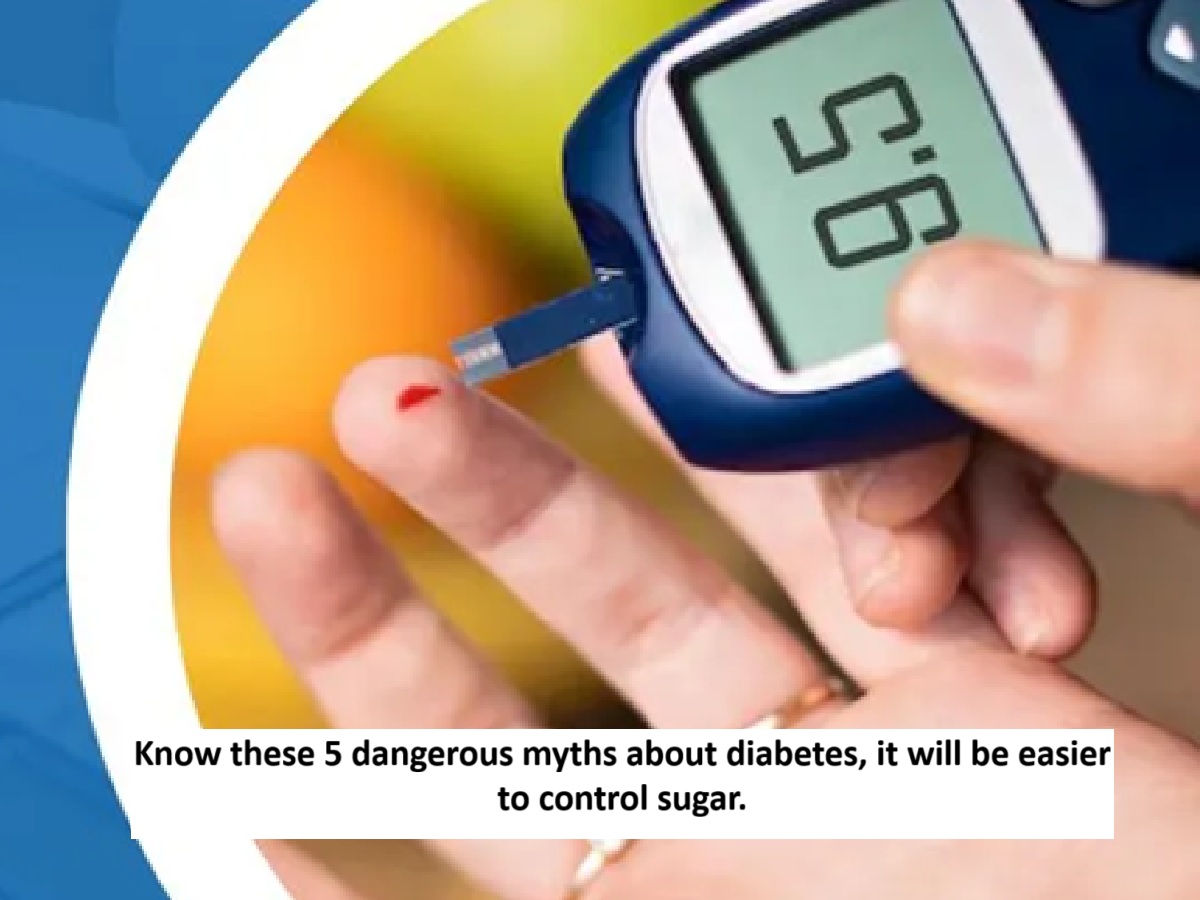
News Topical, Digital Desk : When blood sugar levels rise significantly, the risk of diabetes increases. This occurs when the pancreas doesn't produce enough insulin or your body doesn't respond to insulin's effects. Despite this, there are many misconceptions about diabetes, which can only be addressed and resolved to lead to proper treatment.
Diabetes is caused by eating sugar
Although people consider sugar their enemy, it is not the primary cause of diabetes. The causes of type 1 and type 2 diabetes are completely different. While type 1 diabetes is an autoimmune disease, there are many factors behind type 2 diabetes. Sugar alone is not the cause of type 2 diabetes; added sugar, fat, and refined sugar used in extra processed foods are linked to insulin resistance.
Diabetics cannot consume carbohydrates.
With proper guidance, even diabetics can consume carbohydrates. Fiber-rich carbohydrates like legumes, whole grains, fruits, and vegetables are a good choice. These are digested slowly and maintain glycemic control. They also provide essential vitamins and minerals, which are essential for diabetes management.
Taking insulin means everything is over.
Some people can manage type 2 diabetes with lifestyle changes , but that's not possible for everyone. Taking insulin doesn't mean life is over; it's a life-saving tool that helps maintain blood sugar levels and doesn't signal the end. In type 1 diabetes, insulin is crucial for saving lives. Taking insulin means giving your body what it needs.
People with normal BMI do not get diabetes.
This is a major misconception, as BMI doesn't distinguish between muscle and fat. Nor can it account for genetics, environment, age, or stress. Sometimes, people considered obese based on their BMI can be healthy. However, even those with a normal BMI can face health risks. Research has also shown that excess abdominal fat, beyond the BMI, can be a major risk factor for diabetes.
Diabetes can be reversed
Currently, there is no cure for diabetes, but work is underway. Medications can effectively manage blood sugar levels. If weight is maintained and treatment is started early, type 2 diabetes can be reversed, but this is not a definitive cure. It requires consistent lifestyle changes, follow-up with doctors, and family support.
--Advertisement--

 Share
Share



